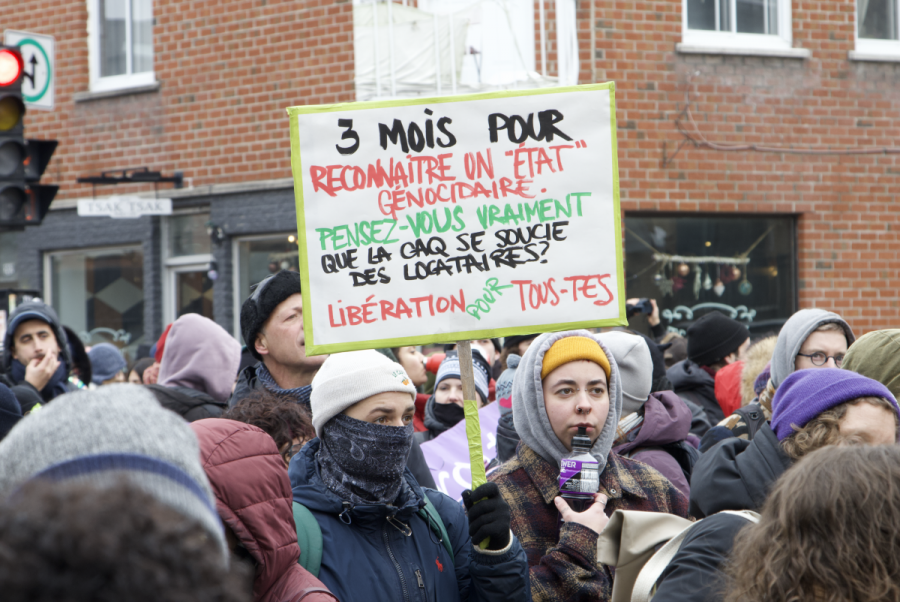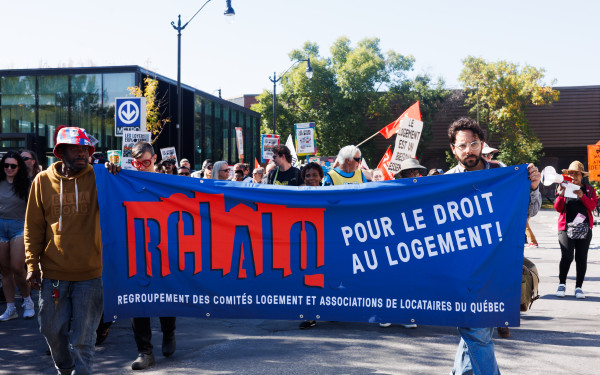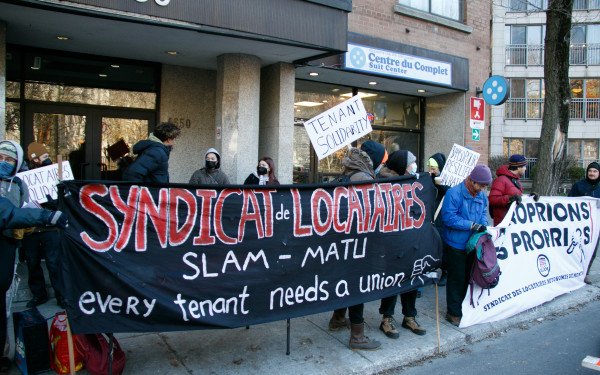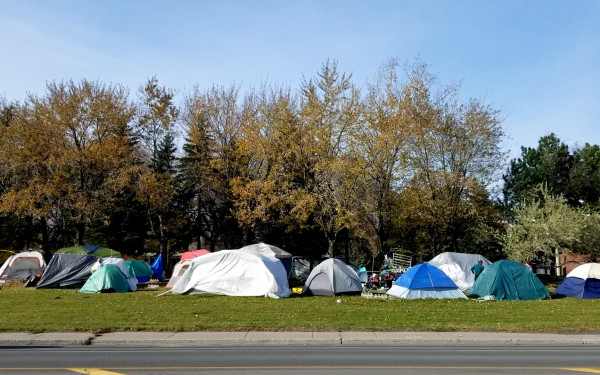Montrealers urge government to stop Bill 31
Protesters continue marching against a bill that threatens tenant rights
On Feb. 3, around a thousand protesters gathered in front of the Saint-Édouard Church on the corner of Beaubien and Saint-Denis Street, where organizers handed out pamphlets and chant guides to the crowd.
The protest, organized by the Coalition of Housing Committees and Tenants Associations of Quebec (RCLALQ), aimed to publicly oppose Bill 31. This bill, if passed, will allow landlords to reject lease transfers with no valid explanation, and then cancel the lease.
“The rents are already too high, and they will be higher after that,” said Martin Blanchard, the coordinator of the RCLALQ. “There are other things that we are mad about, but the lease transfer thing is the most damning.”
Among other concerns expressed by organizers such as Rosalye, the community organizer of the Comité logement de la Petite Patrie, is the discrimination against tenants from marginalized communities. Rosalye’s last name is revoked for fear of being refused an apartment in the future. She believes that expressing a negative opinion on current housing management could deny her housing in the future. Rosalye thinks France-Élaine Duranceau, Quebec’s housing minister, is directly “attacking tenants” by only consulting with landlords rather than talking to tenant rights’ organizations.
She also explained that the bill would allow municipalities to sell social housing (HLM).
“The fact that people will be able to buy HLM [is] so problematic,” she added. “That’s something we should be proud of as Quebecers to have for people that have less revenue.”
Most chants called for the resignation of Duranceau. The RCLALQ also demanded a rent freeze, rent control, abolishing security deposits, and the conservation of lease transfers.
The protesters marched down Beaubien Street, all the way to Marché Jean Talon by way of Little Italy, and finally reached the Centre de Ressources et d’Action Communautaire de la Petite-Patrie (CRACPP). The centre is home to the Comité logement de la Petite Patrie, an organization that helps people facing issues with housing, such as rent increases, vermin, discrimination, and gentrification.
Many speeches also brought up the link between the housing crisis, immigration influx and asylum seekers.
Cédric Dussault, the spokesperson of the RCLALQ, argued in an introductory speech that the housing crisis had touched regions with low immigration rates, like Gaspésie, discrediting the link between the two issues.
“It’s trying to deviate the tension from something else,” said Blanchard. “The problem [is] that the rates are too high and that the owners have too much leeway driving up rents.”
Among the attendees was Rich, a 64-year-old man living in Notre-Dame-de-Grâce who was recently evicted from his house, and who wished to remain anonymous. He believes the government doesn’t have a clear idea of how passing this bill will affect the population on a long-term basis.
“I just wish we weren’t here today,” he said. He expressed his disappointment in regards to the government’s lack of vision as to what the decisions are today and how they’re going to affect us. “It’s just going to get worse,” he said.
He believes that protesting gets exposure in the news that can help bring change.
“Through advocacy, you’re never alone,” Rich said.
Multiple attendees were waving Palestinian flags and wearing keffiyehs. A sign written in the colours of the Palestinian flag read, in French, “Three months to recognize a genocidal ‘state.’ Do you really think the CAQ cares about tenants? Liberation for all.”
Juan Carlos Angel Ramirez, a protester with the Alliance Ouvrière contingent, thinks that the issues are interconnected.
“If the people here rise up against the [Canadian] government [...] maybe, that’s how we can change things [everywhere] somehow,” he said.






_600_375_90_s_c1.jpg)
